Introduction & Analysis
This collection of open-source English-language news articles published over the past week highlights significant events and issues concerning Myanmar. They present a snapshot of the safety and security landscape in Myanmar.
Armed Conflict and Military Actions:
- The junta has been deploying drones and bombs in areas like Kyaukphyu and near the Dhanyawadi Naval Base as it attempts to fend off assaults by groups like the Arakan Army (AA).
- Resistance forces have also been active, with groups claiming to have killed significant numbers of junta troops in regions like Mandalay. They are also targeting junta weapons factories.
- The conflict has led to the displacement of large numbers of people, as seen in Tanintharyi, and has left displaced populations facing severe health issues and a lack of medical care.
Crime and Illicit Activities:
- Illicit economies, including drug trafficking, arms smuggling, human trafficking, and environmental crimes, have fueled Myanmar's conflicts for over 60 years and have deepened since the 2021 coup.
- Scam centers involved in illegal online gambling and telecoms fraud along Myanmar's borders have become a major issue, causing friction with neighboring countries like China and Thailand.
- Human trafficking from Myanmar targets Filipinos, with victims lured by fake job offers to work in scam centers where they face abuse. Thousands of enslaved scammers have been released but are now detained in overcrowded centers with poor conditions at the border with Thailand.
- Military police have been accused of extortion and threats at toll gates, like the one in Loilem, targeting drivers and passengers.
Foreign Involvement and Impact on Security:
- China's strategic investments in Myanmar have become a security concern for Beijing, leading to the enactment of the Private Security Service Law, which allows Chinese military personnel disguised as private security firms to operate in Myanmar.
- This Chinese security presence, particularly around the China-Myanmar Economic Corridor (CMEC) and Kyaukphyu port, risks triggering international incidents with EAOs and resistance forces.
- The junta chief, Min Aung Hlaing, has been strengthening ties with Russia, seeking military and technological cooperation. Russia has reportedly offered satellite imagery for military purposes.
- There are concerns about Western mercenaries who fought in the Ukraine war potentially using Mizoram (India) as a passage to participate in the civil war in Myanmar and train rebel groups.
- The suspension of USAid operations has negatively impacted various programs, including those addressing human trafficking in cyberscam compounds and supporting independent media, potentially affecting the flow of information and the safety of vulnerable populations.
Census & Elections
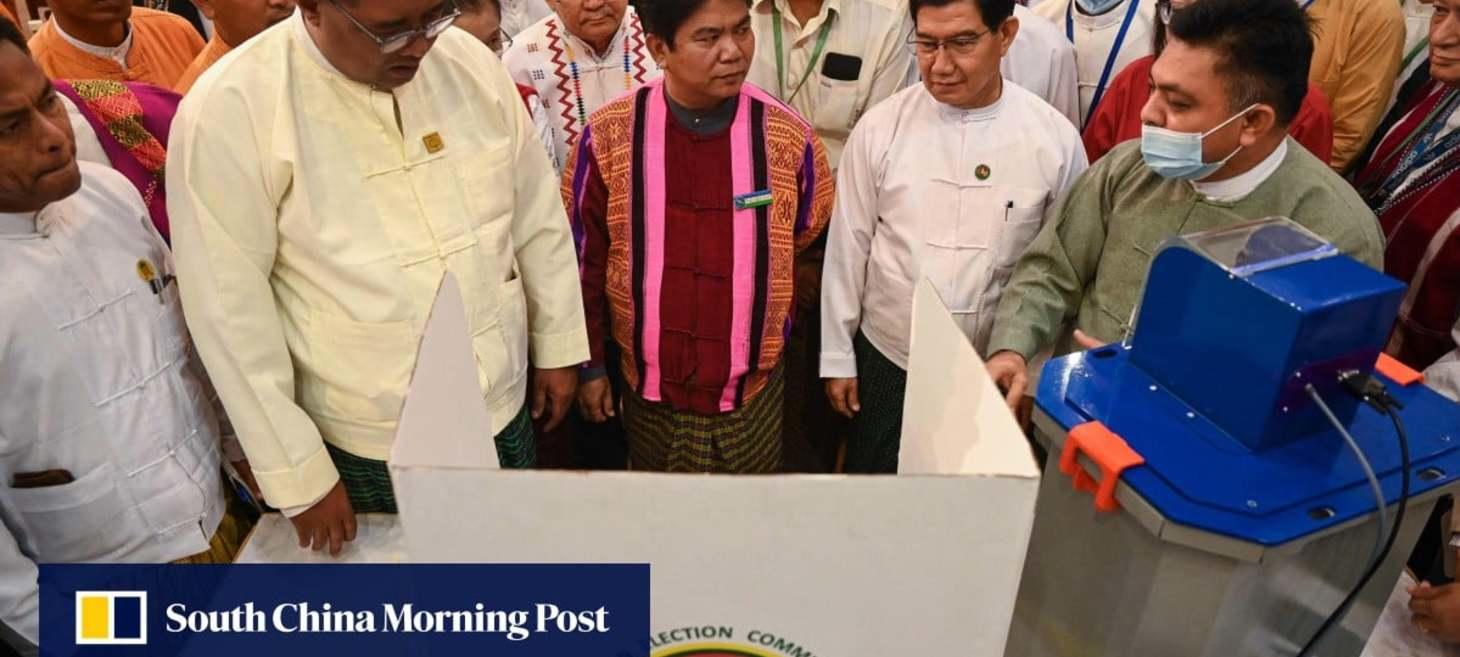
Myanmar election to be held by January, junta chief says
Myanmar's junta chief, General Min Aung Hlaing, announced that an election is planned to be held in December 2025 or by January 2026, which would be the first since the military coup in 2021. During a state visit to Belarus, he stated that the vote would be "free and fair" and mentioned that 53 political parties had submitted their lists to participate, even inviting Belarus to send observation teams. This announcement comes after the military seized power in 2021, making unsubstantiated claims of massive electoral fraud in the 2020 polls won by Aung San Suu Kyi’s National League for Democracy (NLD), and amidst a bloody crackdown on dissent and ongoing fighting in the country, leading critics to doubt the fairness of the upcoming polls.
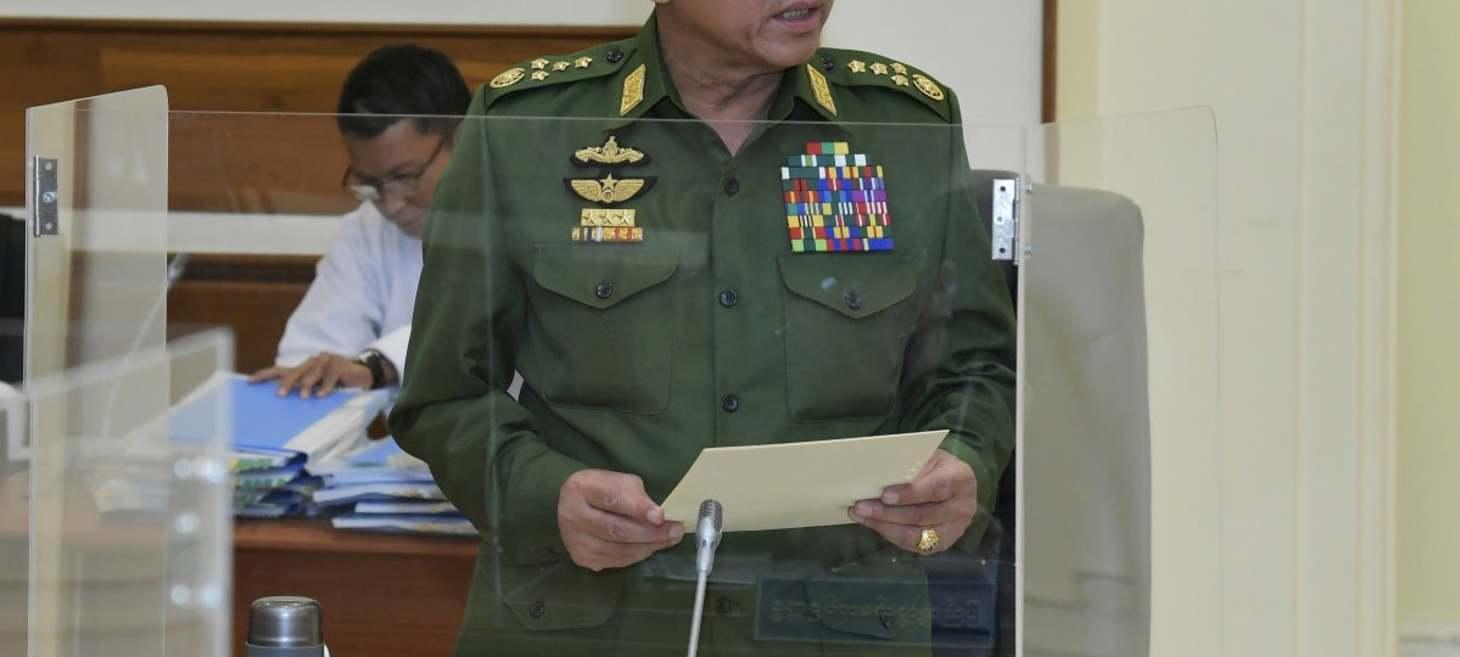
Myanmar Junta’s Farcical Plans for Elections
Myanmar's junta leader, Sr. Gen. Min Aung Hlaing, announced that national elections would be held by January 2026; however, these plans have been widely criticized as "farcical" by Human Rights Watch and UN human rights experts. The junta, which took power in a February 2021 coup and has since committed numerous atrocities and widespread repression, including arbitrary detentions and the dissolution of opposition parties, is creating a climate of fear that makes free and fair elections impossible. Furthermore, the junta controls less than half of the country, and a recent census intended for voter lists appeared to be a tool for counterinsurgency. While some countries like Belarus, and potentially China and Cambodia, may offer support or send observers, others, including some ASEAN members and UN experts, have urged the international community to reject these sham elections that would only legitimize military control.
Conflict
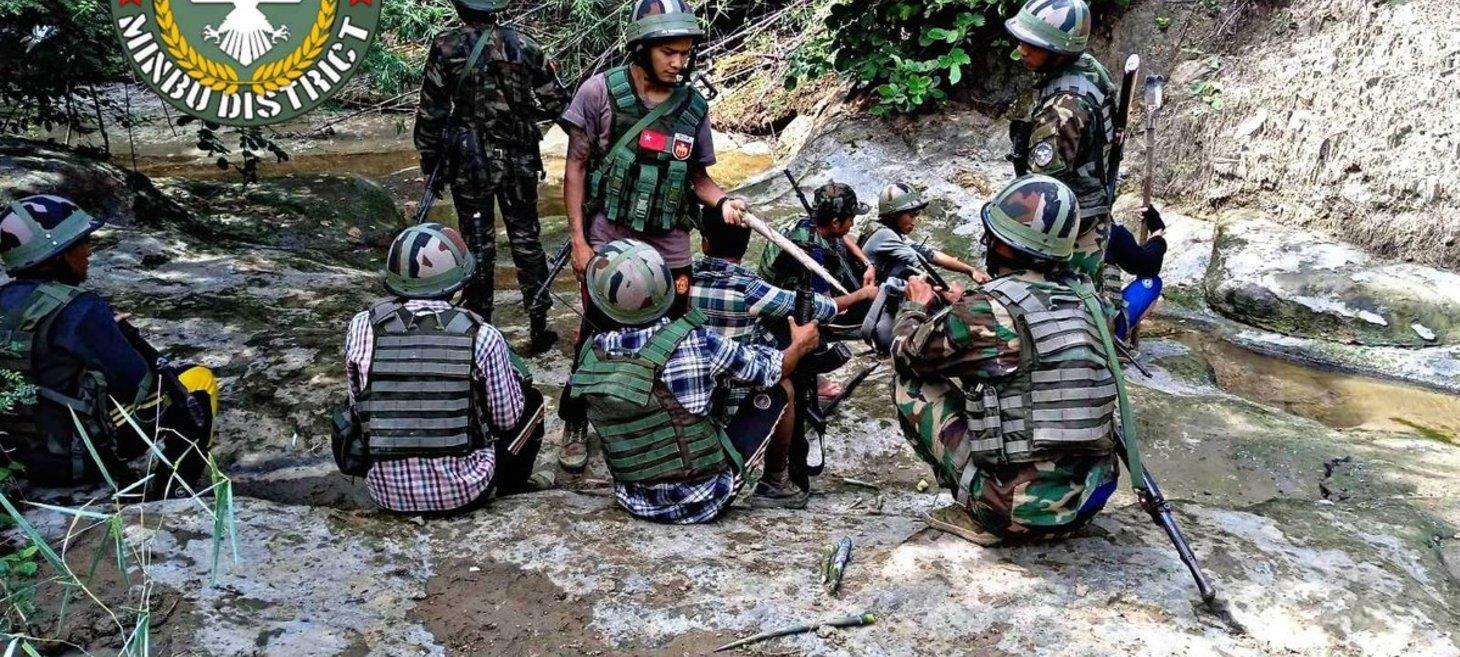
‘The people must reform us’: A resistance spokesman’s account of a new alliance
In Myanmar's strategically vital Magway Region, two battalions under the National Unity Government (NUG) united last month with four other independent resistance groups to form a new alliance based on shared principles. According to a resistance spokesperson, Htoo Lay, leader of the Daung Sit Aung Local People’s Defence Force (PDF) group, this alliance binds the six resistance organisations to prohibitions against using arms to resolve intergroup disputes and against threatening, domineering, or disrespectful treatment of civilians. The formation of this alliance aims to strengthen the resistance in the Magway Region, where they have been targeting junta armament factories.
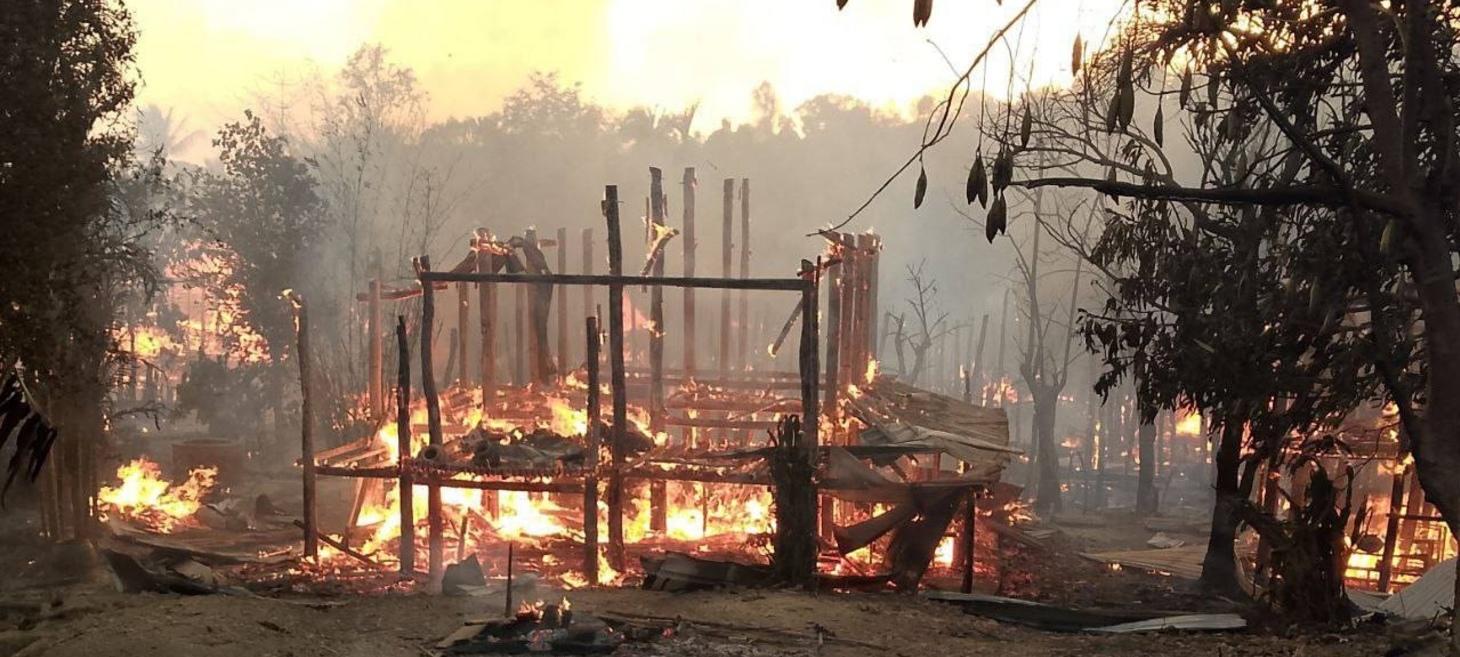
Myanmar junta destroys villages as intense clashes continue near Sittwe and Kyaukphyu
Fierce fighting is continuing in Rakhine State between Myanmar's military junta and the Arakan Army (AA), with both sides reportedly conducting relentless attacks near Sittwe and Kyaukphyu. In Wabo, about five miles north of Sittwe, a junta assault resulted in at least 35 houses being burned down. Similarly, in U Gine, Kyaukphyu Township, junta drone strikes caused significant devastation. These two locations, Sittwe and Kyaukphyu, are among the few areas in Rakhine State still under junta control. While no casualties were reported in Wabo or U Gine because residents had already fled, hundreds of homes have been destroyed due to the junta's attacks. The Arakan Army now controls most of Rakhine State.
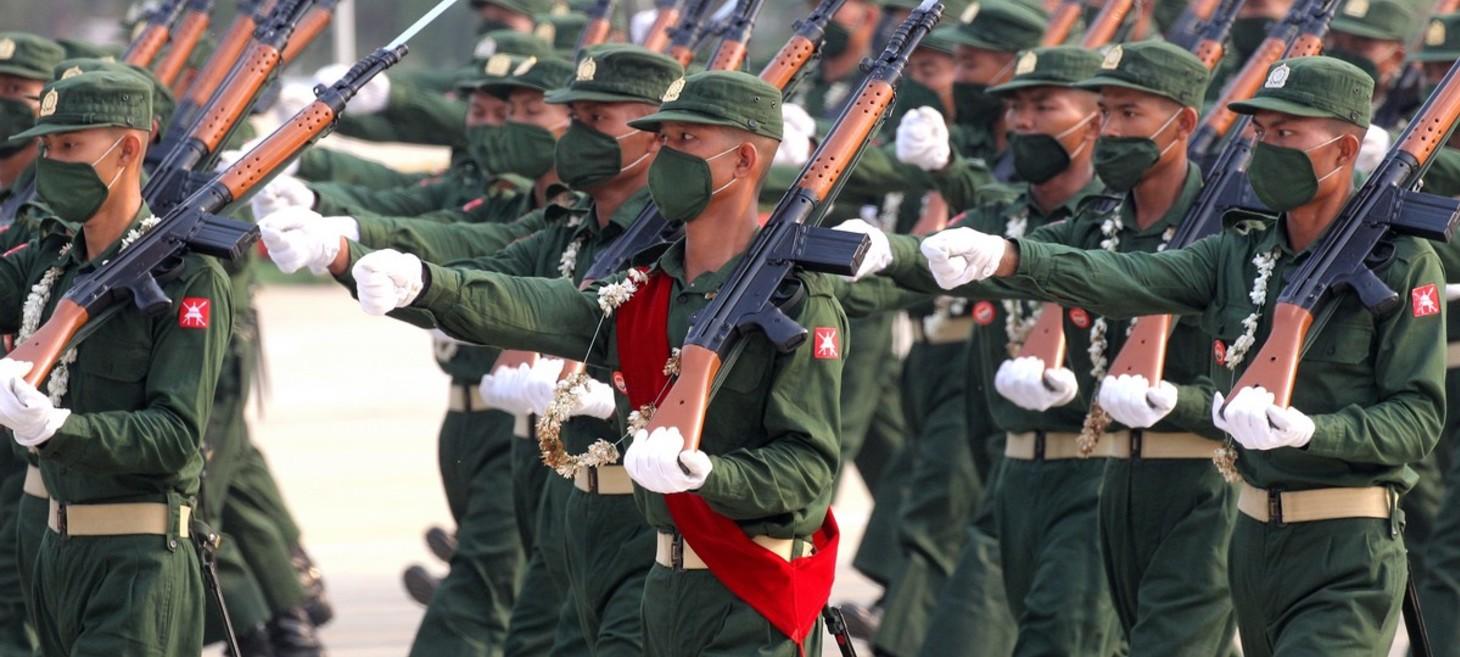
Myanmar’s resistance closes in on junta’s factories of death
In early 2025, the Myanmar resistance demonstrated its increasing strength by directly attacking a junta weapons factory about 30 miles from Seikphyu in Magway’s Pakokku District. A group of over 20 young men carried 107mm rockets across the border between Chin State and Magway Region, traveling for 15 days to reach their target and successfully hitting it with seven out of eight rockets fired on January 18. This event underscores the assessment by Myanmar Now that the regime's capacity to maintain its war machine is becoming increasingly vulnerable as it loses ground to opposition forces.
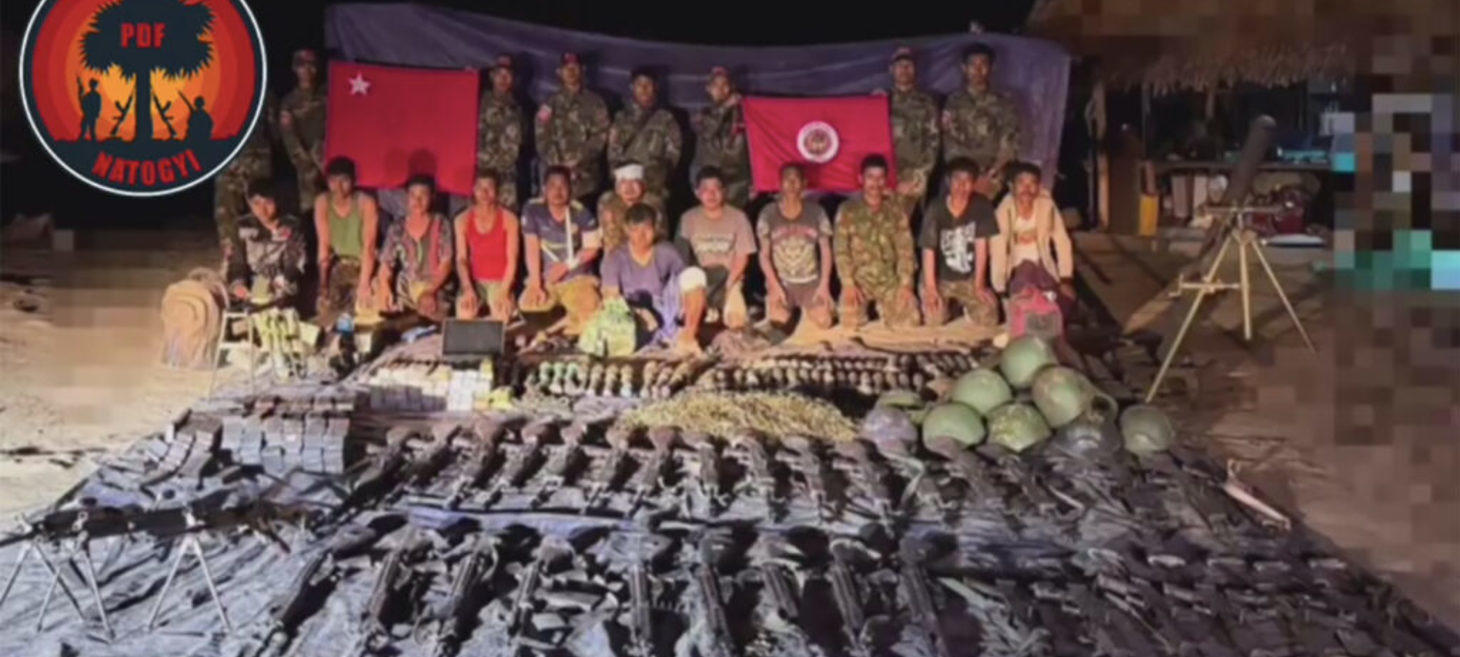
PDF: Almost 50 Myanmar Junta Troops Killed in Mandalay
The Natogyi People’s Defense Force (PDF) claimed it killed nearly 50 Myanmar junta troops and detained 14 others in Natogyi Township, Mandalay Region, on Sunday morning. The PDF and its allies reported attacking around 200 regime troops commanded by military strategist Zeyar Aung, who had retreated to the Wetlu village police station after a junta airstrike and were advancing on villages. The PDF stated that 27 regime troops were killed in the initial attack, including Major Win Hlaing Oo and Captain Aung Ko Ko, and 14 were detained. Citing defecting soldiers, the PDF later reported that 20 more injured soldiers died at the Wetlu police station. Three resistance fighters were killed and seven others injured in the fighting, and the rest of the junta troops escaped after an airstrike. The resistance groups also reported defeating junta troops in Pyin Si village on January 30, killing 21 and detaining eight.
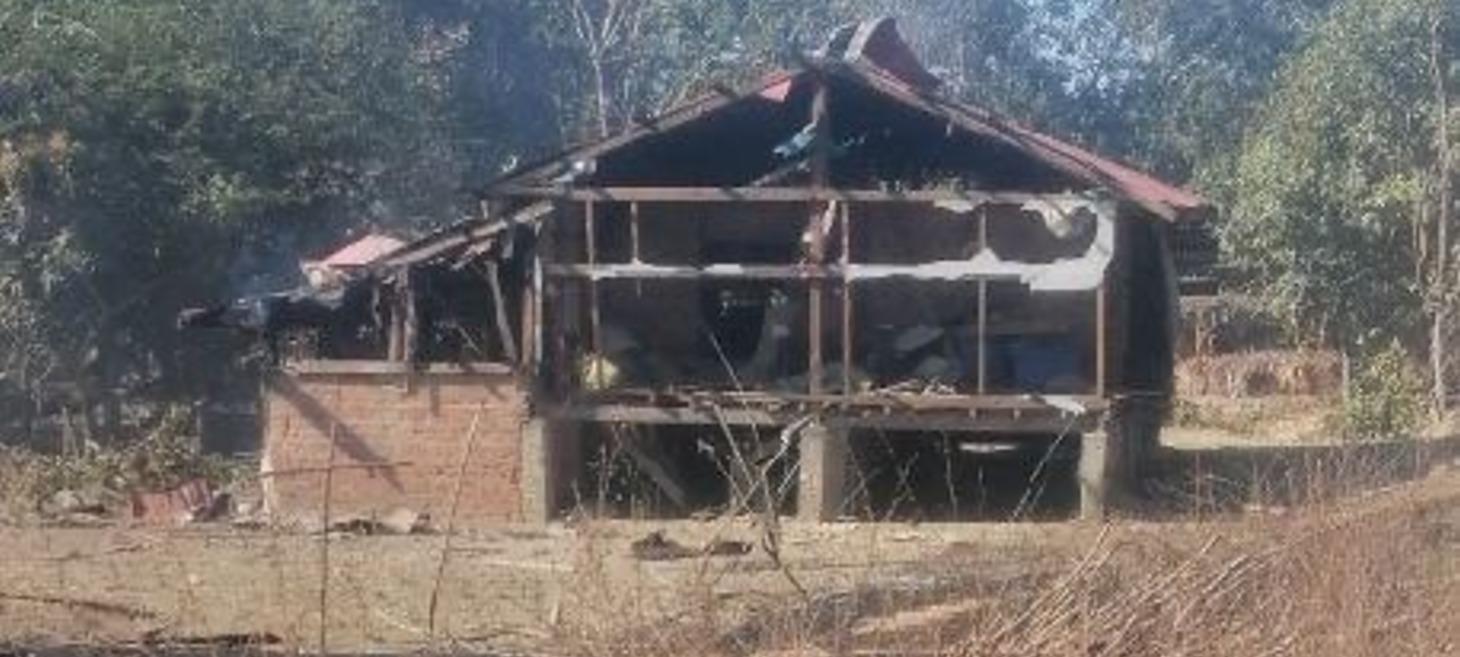
Myanmar junta deploys drones, bombs as fighting nears naval base in Kyaukphyu
Clashes between the Myanmar junta forces and the Arakan Army (AA) have intensified near a junta naval base in Kyaukphyu Township, a strategically important coastal area in Rakhine State with significant Chinese investment. The junta has responded to the AA's assaults by deploying drone strikes and other aerial attacks in the vicinity of the base, which is located on the north side of Ramree (Yanbye) Island, approximately ten miles from the town of Kyaukphyu. This fighting, ongoing for days and spreading to at least six nearby villages, has caused many locals to flee since February, though some remain trapped in the escalating conflict zone.
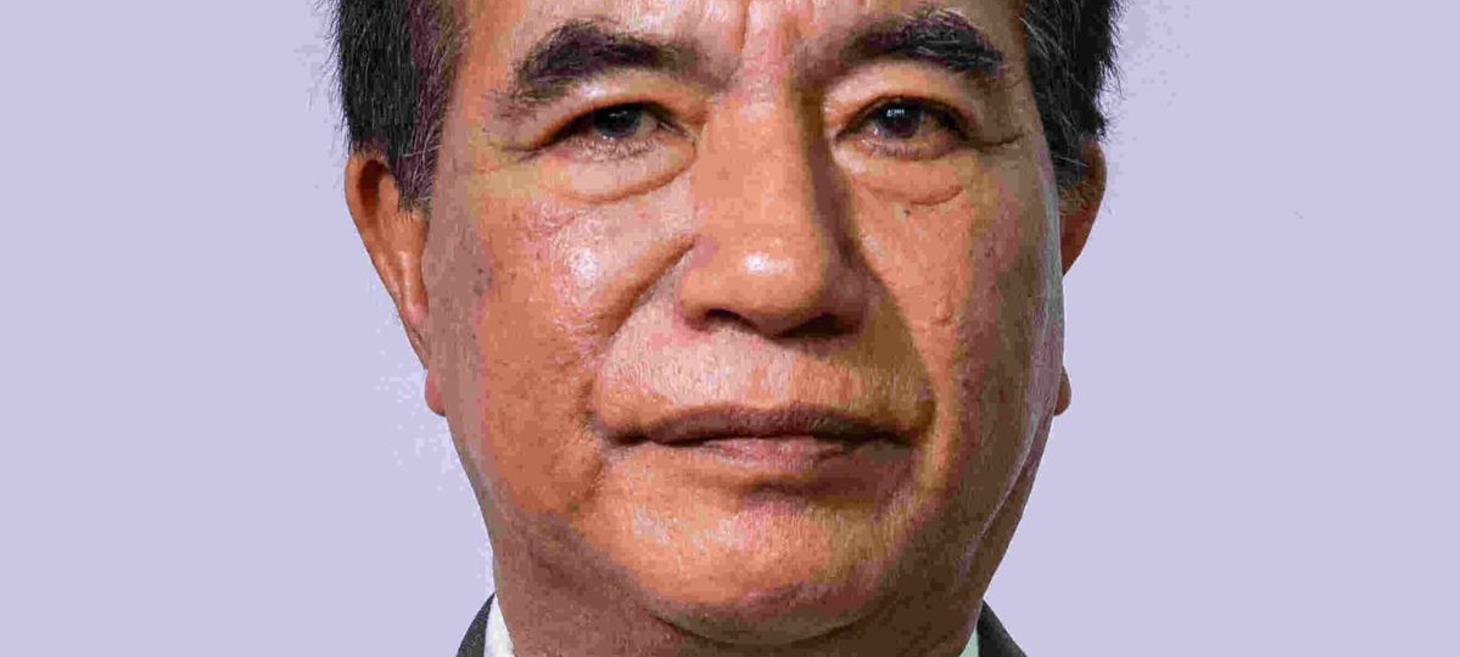
Western mercenaries who fought in Ukraine war are entering Myanmar via Mizoram to train rebels, claims CM Lalduhoma
Mizoram Chief Minister Lalduhoma has expressed concerns that Western mercenaries who fought in the Russia-Ukraine war might be using Mizoram as a passage to Myanmar to train rebel outfits in the Chin State fighting the military junta. This suspicion arises from a spike in foreign visitors, including those from the U.K. and the U.S., with about 2,000 such visitors recorded between June and December 2024, which contrasts with the low number of foreign tourists seen in Aizawl. The arrest of a British national with ammunition and an unannounced visit by the U.S. Ambassador further underscore the region’s strategic importance. Mr. Lalduhoma suggested these visits could be linked to Myanmar’s internal affairs, with potential roles played by global superpowers like China and the U.S., leading to the reimposition of the Protected Area Permit (PAP) and the suspension of the Free Movement Regime (FMR) due to security concerns stemming from the shifting geopolitical landscape in Myanmar. While the State government initially opposed the PAP, they now recognise the Centre's concerns, particularly regarding the rise in drug and arms smuggling along the border and the need to balance humanitarian obligations towards the Chin people with maintaining law and order.
Crime & Narcotics
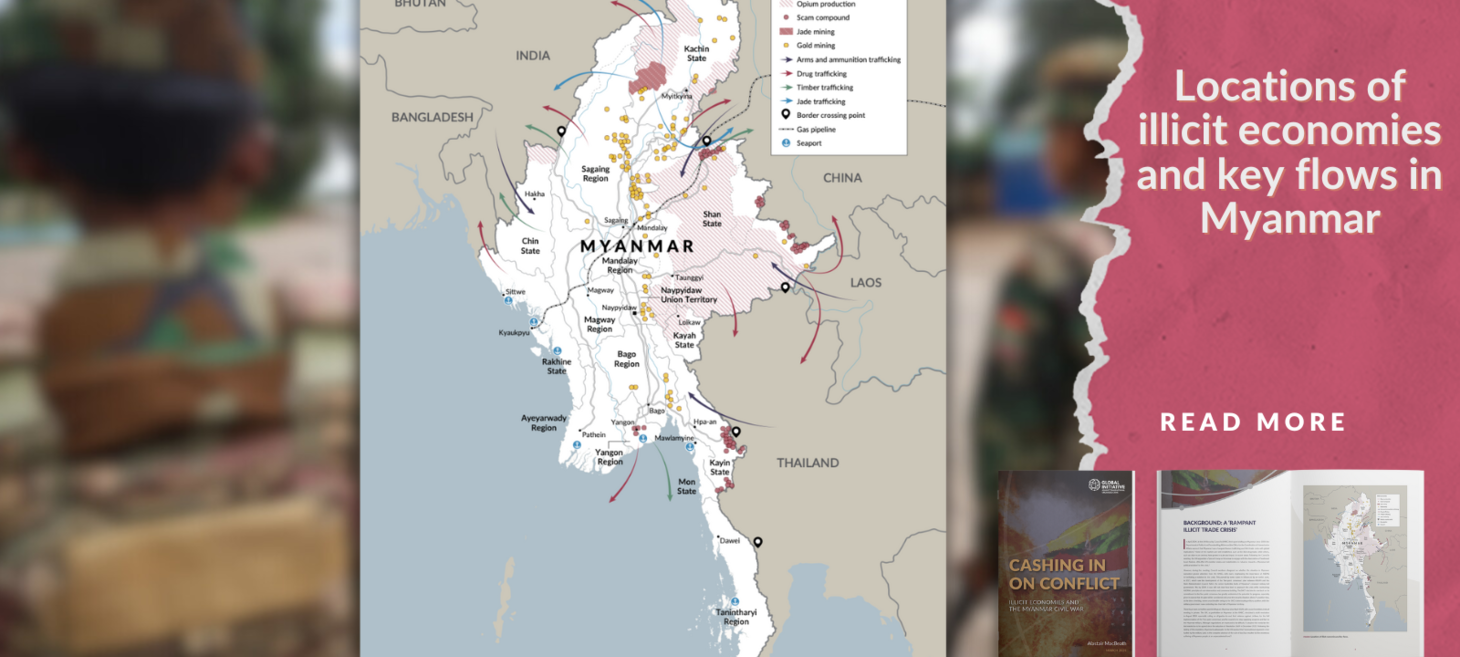
Cashing in on conflict: Illicit economies and the Myanmar civil war
Illicit economies have been a long-standing driver of conflict in Myanmar for over 60 years, shaping political power and financing armed groups, a dynamic that has intensified since the 2021 coup, creating a deeper 'crime-conflict nexus'. This report highlights how illicit trade in drugs, arms, human trafficking, cyber scams, and environmental resources fuels instability by funding both the military government and ethnic armed groups. The lucrative heroin and synthetic drug trade, along with the rise of human trafficking and cyber scams in border regions, and the exploitation of natural resources like jade and timber, are significant contributors to this problem. Past peace efforts have failed to address these underlying economic drivers, emphasizing the need for targeted policies, international cooperation, and economic reforms to disrupt illicit markets and build resilience for any future political resolution in Myanmar. This interconnectedness between crime and conflict suggests that actors in these illicit networks could play a significant role in future peace settlements, raising concerns about the overlap of crime and governance.

Human traffickers from Myanmar target Filipinos
Human traffickers from Myanmar are targeting Filipinos with fake high-paying job offers, leading them to scam centers where they are forced to work without pay and suffer threats and abuse. Ten Filipino victims contacted the Preda Foundation for assistance, and four of them escaped to Thailand after being advised by the Philippine Embassy in Bangkok. However, Thai authorities did not initially consider them trafficking victims because they had not been physically beaten. The Philippine Embassy is now working to pay the fines imposed by the Thai authorities, which amount to 20,000 baht per person (approximately P34,062.96), and has booked flights for their return to the Philippines. The Philippine Department of Migrant Workers (DMW) and the labor attaché in Bangkok are also involved in helping these and other Filipinos escape similar situations.
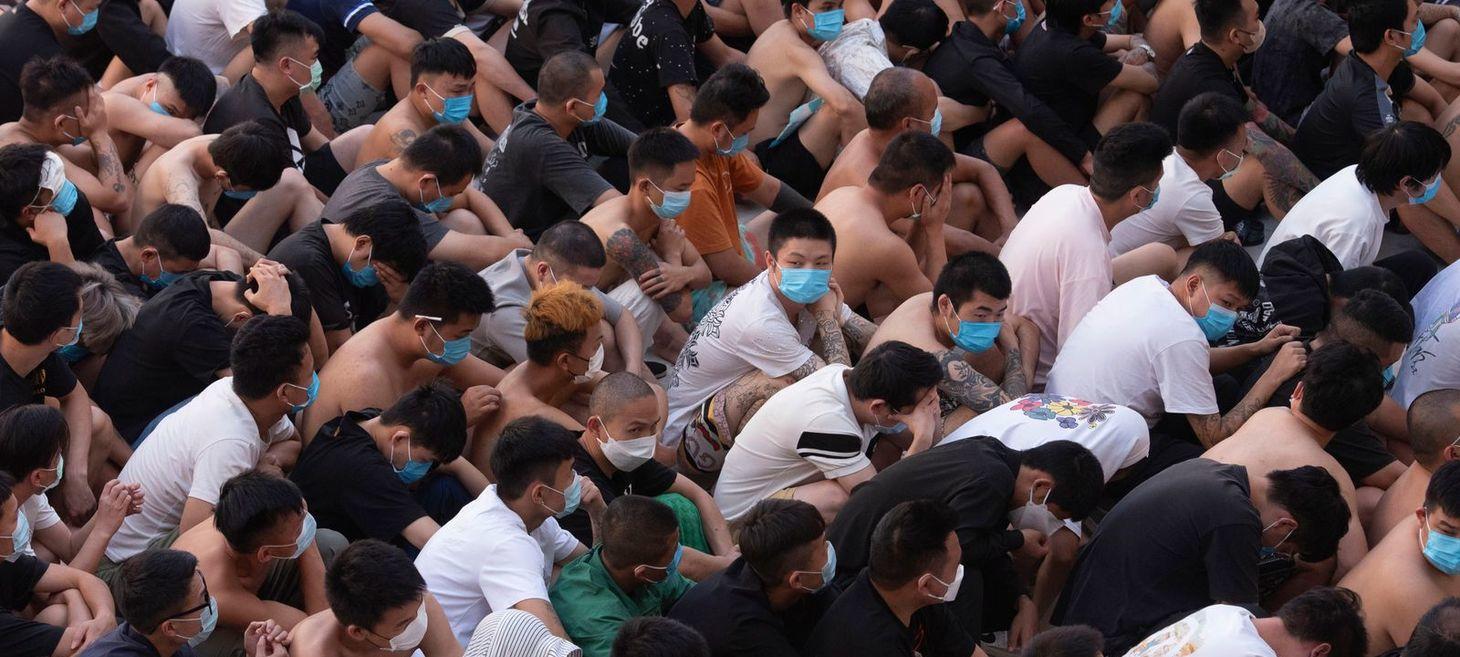
From one predicament to another: How freed scammers are detained again
Following a large operation by Thai, Chinese, and Myanmar authorities that resulted in the release of over 7,000 individuals forced into online scamming in Myanmar, these former enslaved workers are now facing a dire situation as they are being detained in overcrowded centers near the Myanmar-Thailand border with limited food and no medical care. Despite being freed from the scam compounds where they were forced to defraud people of their savings, these individuals, including people from India, are now in limbo, unsure of when they can return home, as Thai authorities are preventing them from crossing the border without immediate repatriation, and armed groups holding them await action from their home governments. This situation highlights a shift from one difficult predicament to another for these individuals, who were victims of forced labor in the cyber scamming industry, which is estimated to involve hundreds of thousands of people and billions in stolen funds.

Burma: Justice for the people at last? – Northeast Bylines
A small Rohingya community organisation in the UK secured the first-ever arrest warrant for the head of the Burmese military, Min Aung Hlaing, and other senior leaders, according to Northeast Bylines. This development was welcomed by Zoya Phan, Programme Director from Burma Campaign UK, who stated it represents progress towards ending impunity for the Burmese military's crimes. The news is part of recent stories highlighted by Burma Campaign UK on their website, which also includes links to related articles and encourages users to join their action network.
Economy
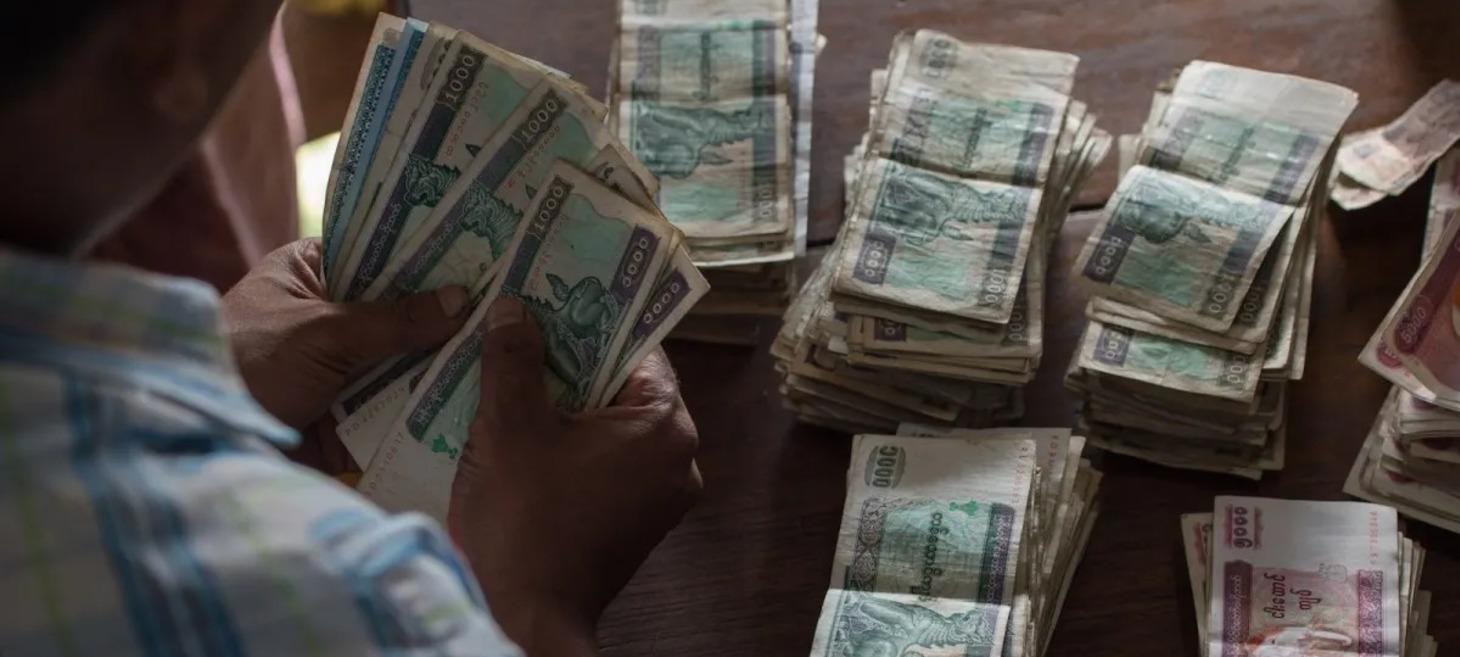
Chin Townships Face Banknote Shortage
Several townships in Chin State, specifically Kanpetlet, Mindat, Matupi, and Paletwa, are facing a severe banknote shortage that is disrupting daily life, including trade, healthcare, religious practices, and social services. This shortage has been caused by fighting that has interrupted banking services in these resistance-controlled areas. Residents are struggling to withdraw cash from mobile payment apps like Wave and KPay, a problem exacerbated by internet and mobile phone service disruptions. Even when mobile services are available, cash withdrawals are limited, leading to an informal market where individuals with cash charge exorbitant rates (up to 10,000 MMK for every 100,000 MMK) for exchanging digital money, though even this service is unreliable due to banknote scarcity. Paletwa Township has experienced this shortage since its capture by the Arakan Army (AA) on January 14, 2024, while Kanpetlet Township, under the control of the Chin Brotherhood (CB) alliance since December 23, 2024, faces a less severe situation due to its proximity to Magway Region.
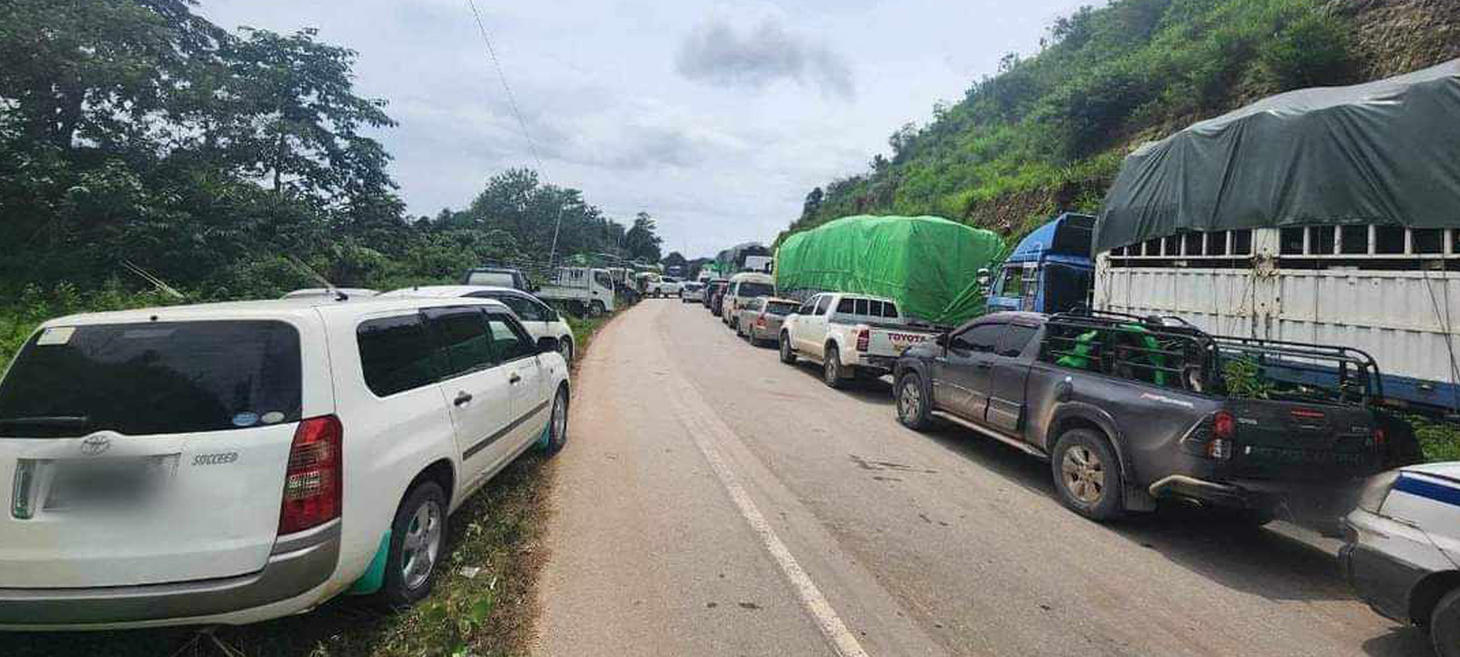
Myanmar Junta Slashes Border Trade to 2 Trucks Per Day on Main Thai Route
The Myanmar junta has severely restricted border trade with Thailand, allowing only two trucks per day on the key Myawaddy-Yangon route. This intensification of the crackdown on smuggled goods follows complaints from the deputy junta chief about the lack of decline in illegal trade despite arrests for corruption. Reports of police demanding bribes also contributed to the increased scrutiny. This restriction, coupled with Thailand's reduction of electricity and fuel to border areas due to scam crackdowns and the junta's ban on fuel transport to Myawaddy from within Myanmar, is expected to worsen shortages and raise prices. The junta is also tightening checks in areas like Hpa-an Township due to clashes with Karen resistance forces and the crackdown on scam operations in Myawaddy. This situation arises as Myanmar becomes more dependent on Thai imports due to disruptions in trade with China, and despite the junta seizing 450 billion kyats worth of smuggled goods between January 2022 and January this year, legal imports remain unprofitable due to costly and limited licenses.
Ethnic Issues
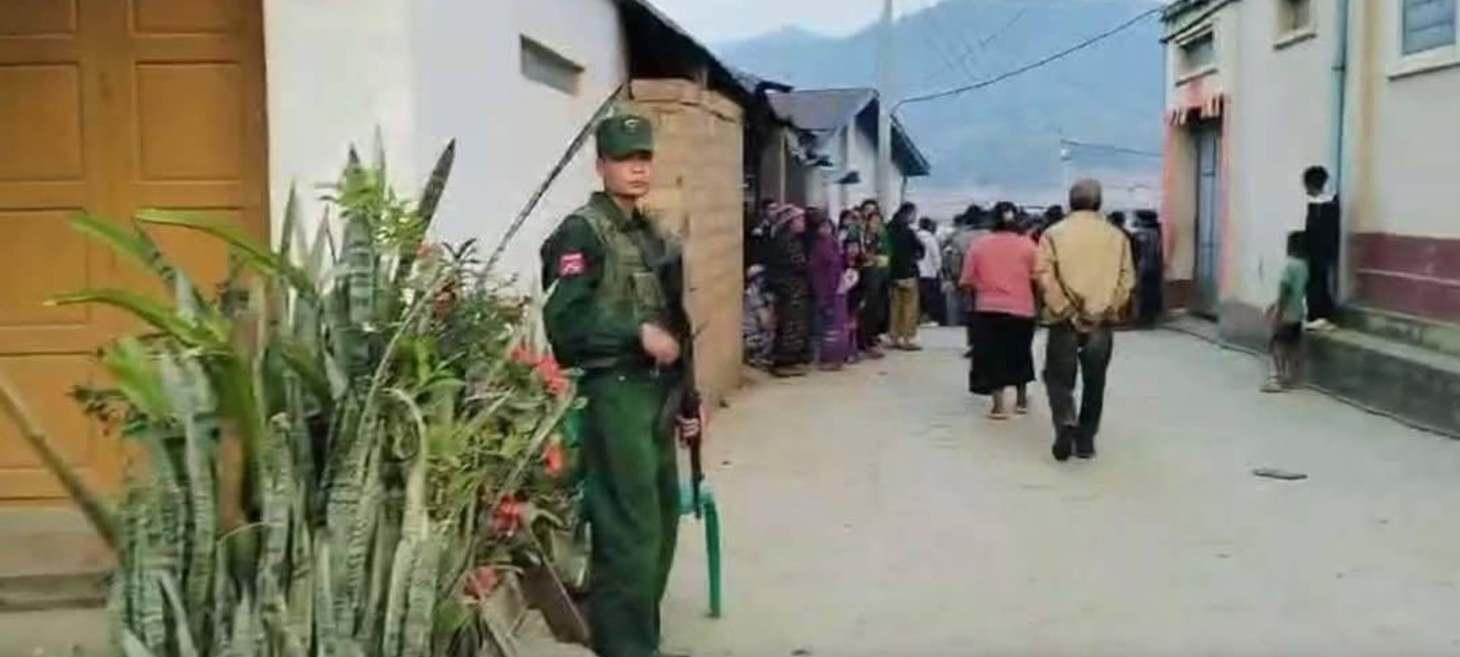
Deadly Clash Over Gold Mining in Kutkai Township Sparks Outrage
A violent confrontation erupted in Mongsee, Kutkai Township, Shan State, on March 5, 2025, resulting in the deaths of six people and injuries to six others, when local villagers protested against gold mining operations by Chinese and Kokang forces near a critical water source. According to eyewitness accounts, MNDAA troops opened fire on the unarmed protesters from Pein Kham village, who were demonstrating against mining activities in the Nam Lin stream and surrounding farmlands due to environmental and livelihood concerns. The villagers had repeatedly asked the MNDAA to halt these operations, which involved heavy machinery and had already led to pollution in the Nam Mao stream due to mining in Mong Yu Lay village allowed by the TNLA since January. In response to the killings, residents from several villages carried the bodies of the deceased to the MNDAA office in Mongsee to demand accountability. This incident has exacerbated existing tensions in the region regarding resource exploitation and the impact on local communities.
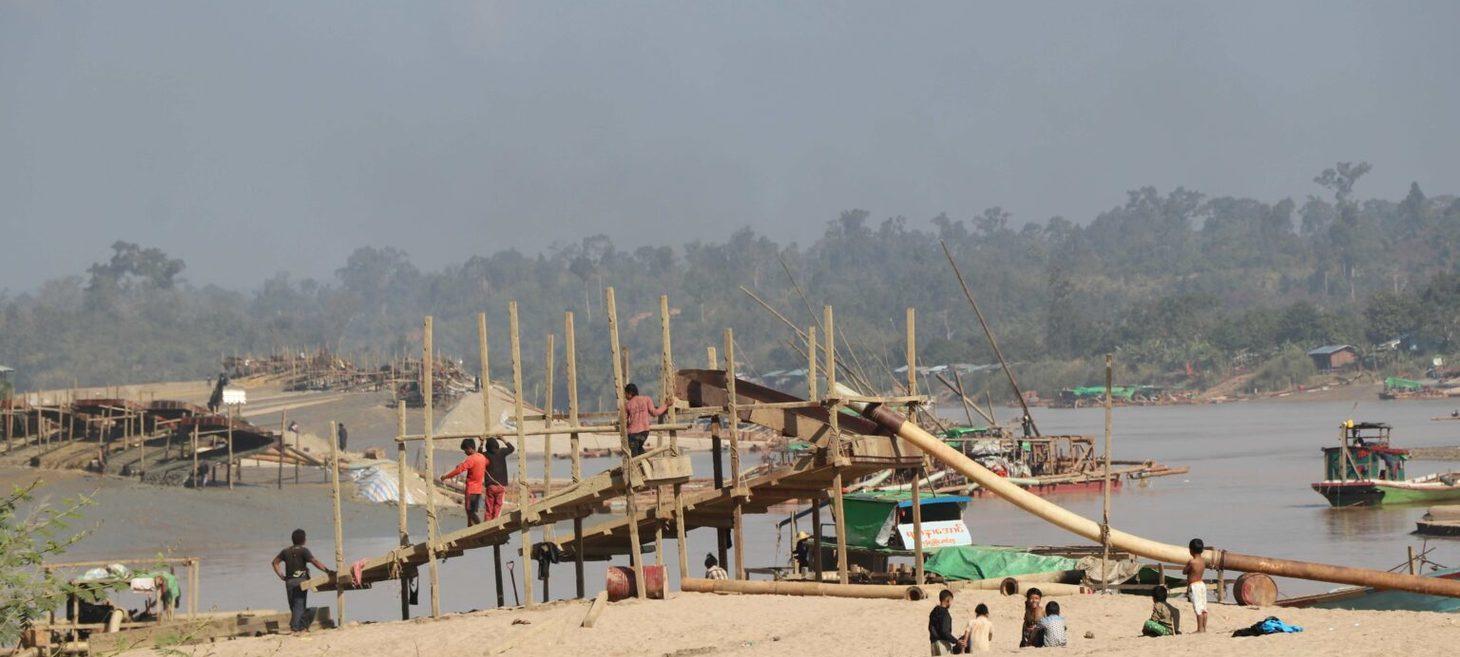
Kokang army agrees to halt gold mining in Kutkai after deadly shooting
Following a deadly shooting incident where members of the Myanmar National Democratic Alliance Army (MNDAA), also known as the Kokang Army, allegedly killed six township residents in Kutkai Township, northern Shan State, who were protesting the pollution of a local drinking water source (Namlinhka Creek) by their gold mining operations, the Kokang Army agreed to halt the mining activities. The confrontation occurred near Ping Kham village, Mong See village tract, and resulted in the deaths of villagers and a member of the Kachin Independence Army (KIA). In response, locals held a protest, and subsequently, the MNDAA's district-level administrators held negotiations attended by KIA officials, ultimately acceding to the demands of the local civilians to suspend the gold mining operations.
Foreign Affairs
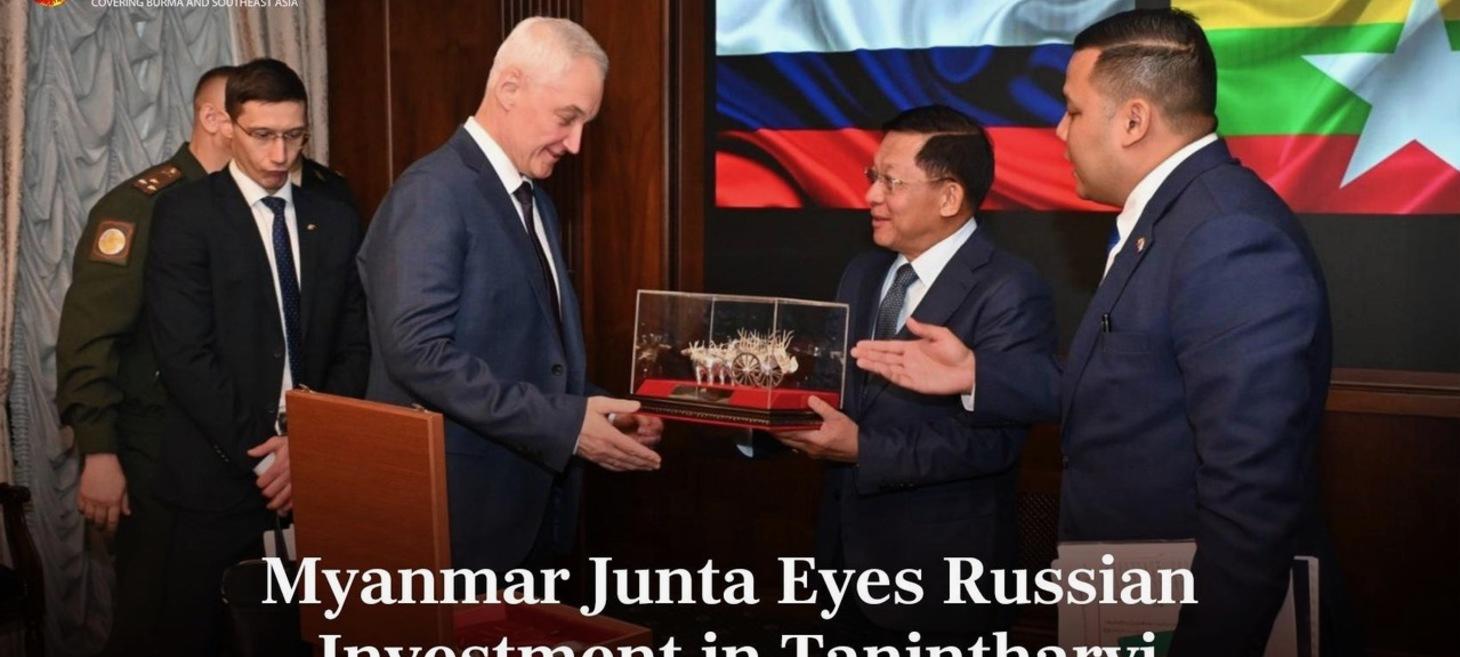
Myanmar Junta Eyes Russian Investment in Tanintharyi
The Myanmar junta is actively seeking Russian investment in the Tanintharyi region, particularly focusing on the Dawei Special Economic Zone (SEZ) and its deep-sea port. Junta energy minister Ko Ko Lwin has met with Russian counterparts to discuss the construction of an LNG terminal, fuel pipelines, and an oil refinery in Dawei, for both domestic use and export. Discussions also included Russian fuel imports at lower prices, technical assistance in oil and gas exploration, and a feasibility study for offshore exploration. Junta leader Min Aung Hlaing has met with Russian President Vladimir Putin and business leaders, hailing cooperation in various sectors and specifically praising collaboration to upgrade the Dawei SEZ, with deals signed on geological research and mineral exploration. However, an energy analyst suggests potential delays in Russian investment due to regional instability and profitability concerns, noting that previous energy discussions have not yet produced concrete results. It's also worth noting that the Dawei SEZ has faced prior issues with contract breaches by Thai firms.
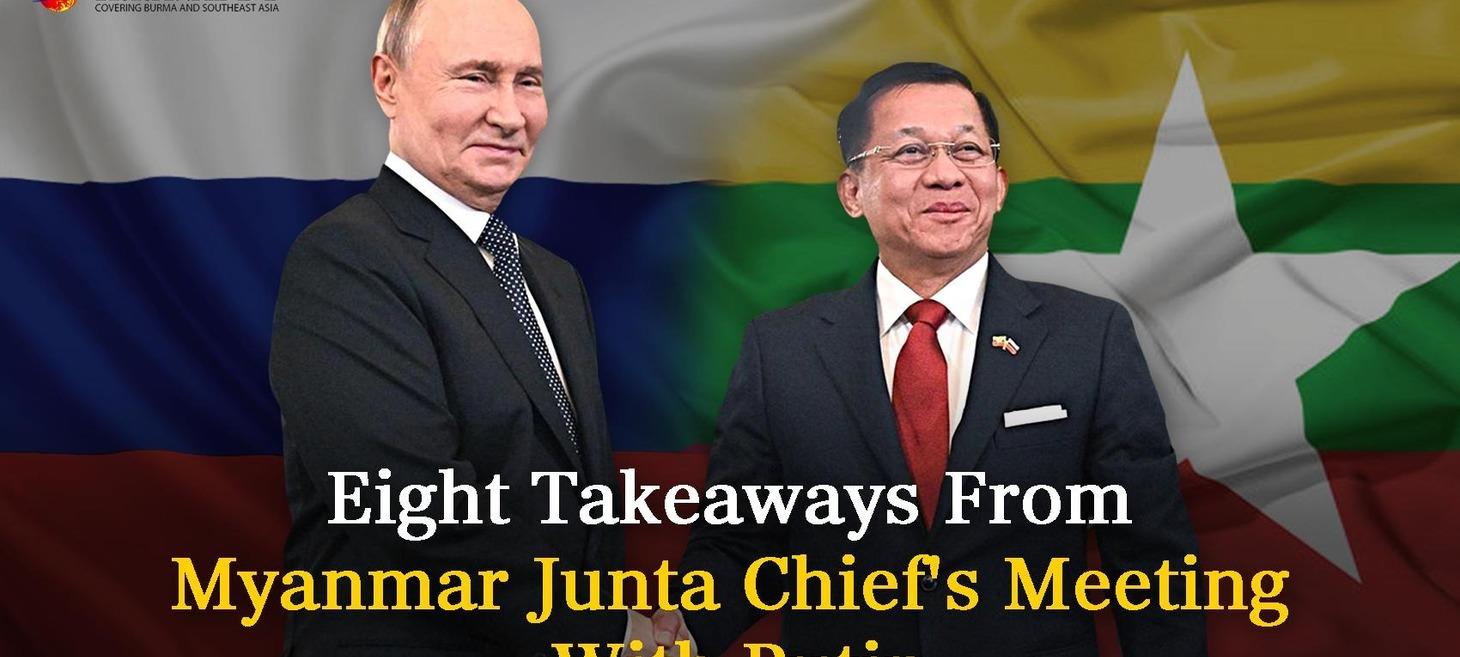
Eight Takeaways From Myanmar Junta Chief’s Meeting With Putin
Myanmar junta chief Min Aung Hlaing met with Russian President Vladimir Putin in his first official visit to Moscow, marking his fourth trip to Russia since seizing power in 2021. During the meeting at the Grand Kremlin Palace, they oversaw the signing of 10 Memorandums of Understanding (MoUs) covering various sectors, including nuclear energy and space exploration. Notably, both Min Aung Hlaing and Putin are subjects of international arrest warrants. The junta leader reiterated his support for Russia’s military operations in Ukraine, while Russia has been a key ally of the junta, providing weapons and support at the UN. An unusual point of discussion was Min Aung Hlaing's explanation of a prophecy claiming Putin was a "rat king" in a previous life. While cooperation in various sectors was discussed, the Dawei Special Economic Zone project was not on the agenda. The visit is seen as a diplomatic achievement for the isolated junta leader, potentially leading to increased security cooperation and military assistance from Russia.
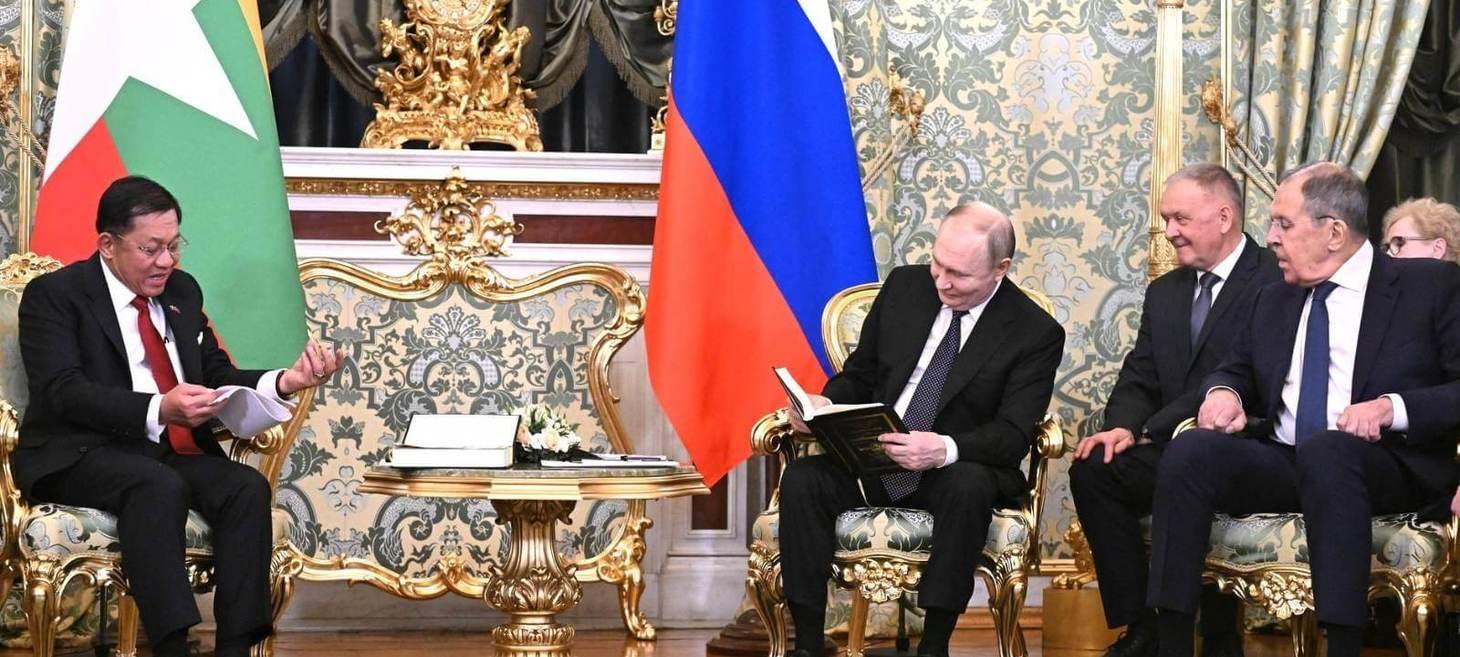
MIN AUNG HLAING’S RUSSIAN TRIP: Learning the trade of staying in power indefinitely from Putin?
Military junta leader Min Aung Hlaing's trip to Moscow, his fourth since the 2021 coup, aimed to counter international isolation following an ICC prosecutor's request for an arrest warrant for crimes against humanity and a similar warrant issued by Argentina. During his visit, he met with Vladimir Putin, oversaw the signing of 10 MoUs across various sectors, and made unusual flattering remarks about the Russian president. This trip, along with a subsequent visit to Belarus where he invited election observers, suggests an attempt to emulate Putin's and Lukashenko's strategies for maintaining power through elections and to solidify Myanmar's alignment with the Sino-Russian bloc. This alignment potentially violates Myanmar's constitution's commitment to a non-aligned foreign policy and the prohibition of foreign troop deployment, especially with the reported presence of Chinese security personnel. Ultimately, Min Aung Hlaing's actions indicate a determination to remain in power, potentially leading to a prolonged conflict with the support of Russia and China.
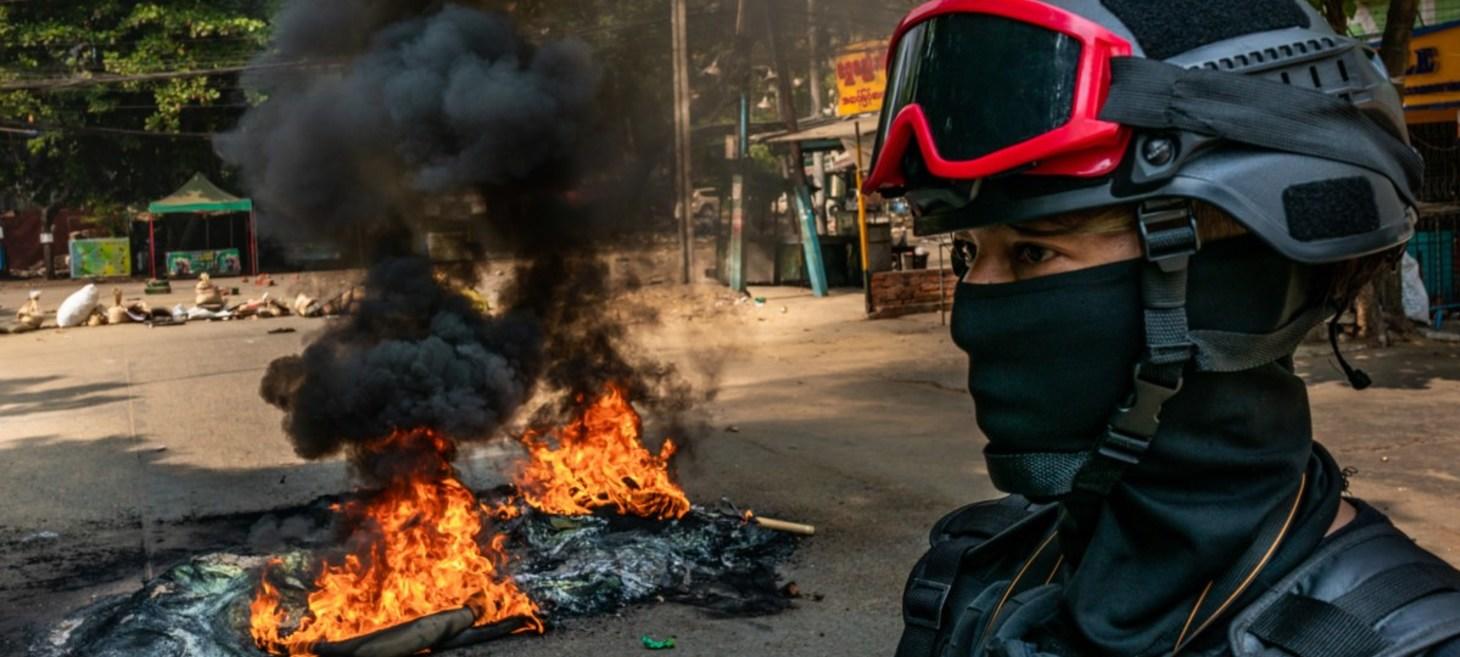
Trump and Musk just did Myanmar’s brutal junta a huge favour
The recent freeze of all foreign aid from the United States, initiated by Donald Trump and Elon Musk, has delivered a significant blow to Myanmar's pro-democracy movement, which is already struggling against the military junta led by Min Aung Hlaing. This abrupt suspension of USAid operations, the largest financial backer of the movement, has had devastating consequences in the borderlands next to Thailand, including the cessation of medical care in refugee camps leading to reported deaths, the closure of schooling programmes and safe houses, the termination of human rights investigations, and the halting of anti-human trafficking efforts. Independent media outlets, crucial for exposing the junta's lies and propaganda, have also been severely impacted, with organizations like Mizzima scrambling for new donors. The US retreat is expected to strengthen the influence of China and Russia, the latter being Myanmar's main arms supplier. While the suspension is currently under review, the long-term prospects for US funding appear bleak, leaving the pro-democracy movement facing increased hardship but determined to continue their struggle against the junta.

The National Security Case for U.S. Support for the Burma Resistance
The article argues that U.S. support for the Burma resistance is crucial for U.S. national security due to the strategic challenge posed by China. China, considered the most comprehensive threat to the U.S. and the international order, views Burma as a vital component in its strategy, especially concerning a potential invasion of Taiwan. The China-Myanmar Economic Corridor (CMEC) is highlighted as a key element, providing China with a secure land-based trade and energy route via Kyaukphyu Port, bypassing the vulnerable Malacca Strait, through which most of China's oil imports transit. This CMEC infrastructure, including pipelines, railways, and highways, possesses dual-use potential for military logistics, strengthening China's geopolitical leverage in the Indian Ocean. The author contends that the U.S. should counter China by preventing its support for the Myanmar junta, recognizing and providing aid, including military assistance, to the emerging civilian government (NUG) and ethnic armed organizations (EAOs) that control significant territory, ultimately supporting democracy in Burma and weakening China's strategic foothold.
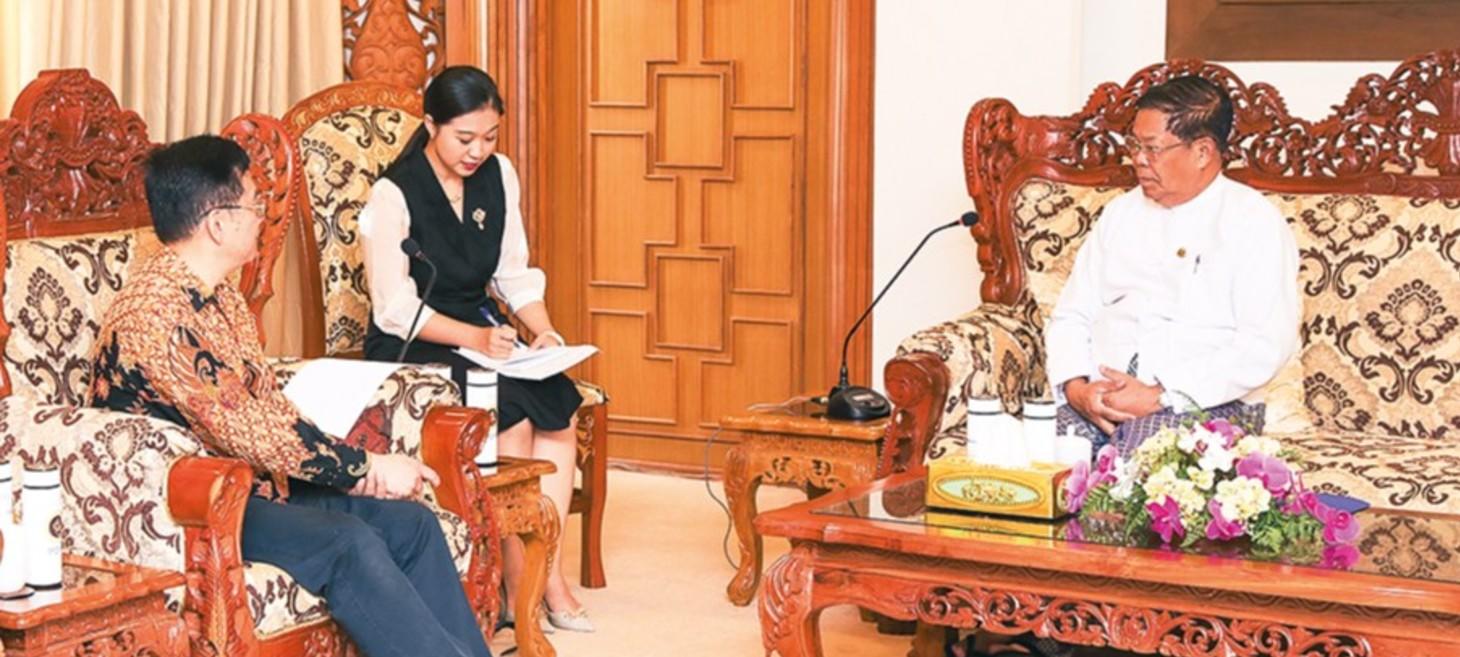
Chinese special envoy arrives in Naypyitaw as junta chief returns from Russia trip
China's special envoy for Asian affairs, Deng Xijun, arrived in Naypyitaw on Monday, coinciding with junta chief Min Aung Hlaing's return from Russia. During his visit, the Chinese envoy met with the junta's foreign minister, Than Swe, to discuss several key issues, including peace and stability along the shared border, continued Chinese support for Myanmar’s socioeconomic development, and the nation’s “national reconciliation process”. The two sides also agreed to collaborate on addressing the "growing challenges" of illegal online gambling and telecoms fraud in scam centers along Myanmar’s borders. This visit marks Deng Xijun's second trip in recent months, his last being in August of the previous year after the regime lost control in northern Shan State.

Chinese Military Infiltrates Myanmar in Security Guise
Myanmar enacted the Private Security Service Law on February 18, 2025, which effectively allows Chinese military personnel, disguised as employees of private security firms, to operate within Myanmar. This move is seen as a calculated strategy by Beijing to protect its strategic investments, particularly within the China-Myanmar Economic Corridor, amidst the country's intensifying civil conflict. Reports suggest that this legislation was orchestrated by China following a visit by its Foreign Minister in August 2024, culminating in a deal involving the CITIC Group to establish a Chinese private military corporation in the strategic coastal area of Kyaukphyu. Despite requiring a majority of Myanmar nationals in these security firms and prohibiting foreign armed forces, loopholes allow former Chinese People's Liberation Army soldiers to take these roles, creating a de facto Chinese military presence. This approach mirrors China's tactics in other Belt and Road Initiative countries where economic dependencies have led to security entrenchment, raising concerns about Myanmar's sovereignty and potentially complicating the existing civil conflict by risking international incidents.
Governance & Rule of Law
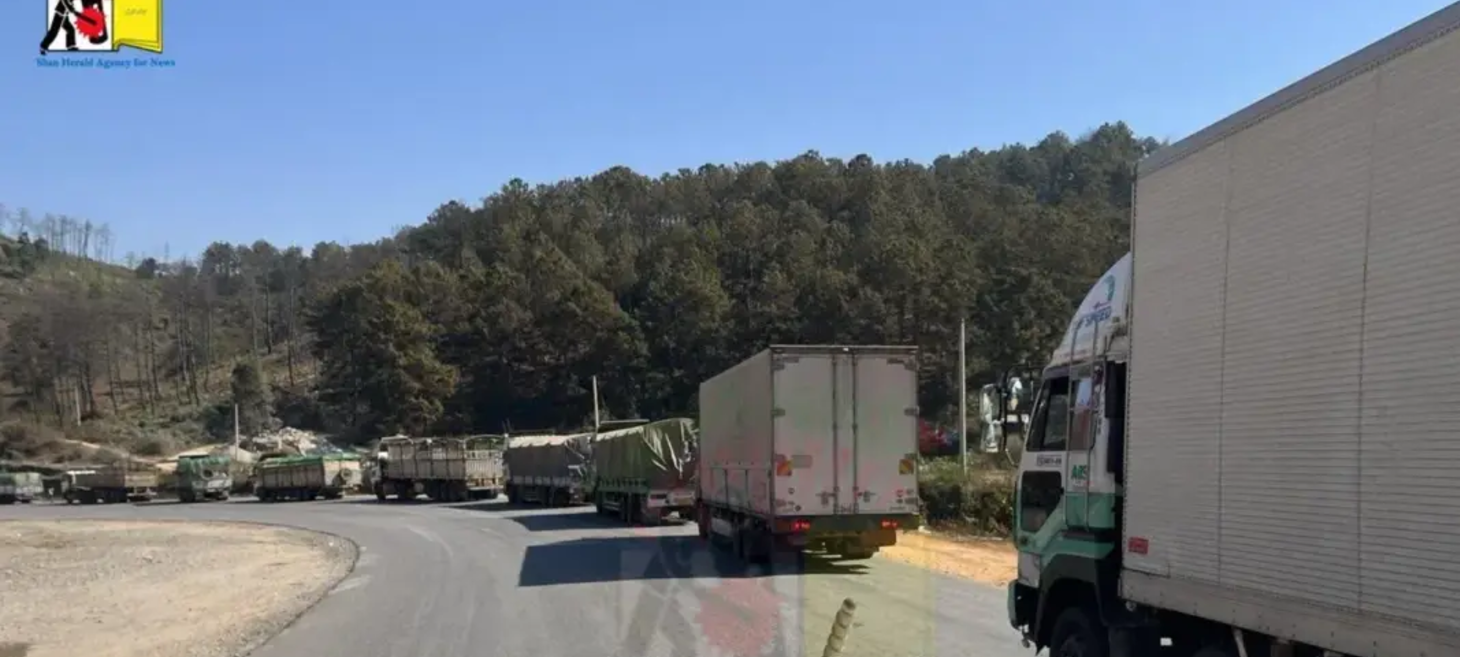
Military Police Accused of Extortion and Threats at Loilem Toll Gate
Travelers passing through the Loilem toll gate in southern Shan State are reportedly facing increasing harassment, extortion, and threats from the Military Council’s Drug Enforcement and Anti-Human Trafficking Police Forces. Eyewitness accounts detail incidents such as the unexplained halting of passenger buses, confiscation of ID cards, and instances where guns were pointed at individuals without questioning. Locals accuse Police Chief Tin Htun Aung and Deputy Police Chief Tin Maung Myint of extorting money from passengers under false pretenses, with claims of intimidation and officers appearing drunk during checks. Passengers have been detained for hours without explanation and subjected to physical abuse and threats of charges for protesting. Concerns are raised about the particular vulnerability of female passengers. Furthermore, since November 2024, the military council in Loilem has allegedly been coercing arrested drug users into serving as guards at entry and exit points. As the Loilem toll gate remains the only route between Taunggyi and Namsang, travelers are forced to endure these daily abuses, and despite growing complaints, authorities have not taken any action. Residents and travelers are demanding an end to these oppressive practices and calling for accountability.
Healthcare
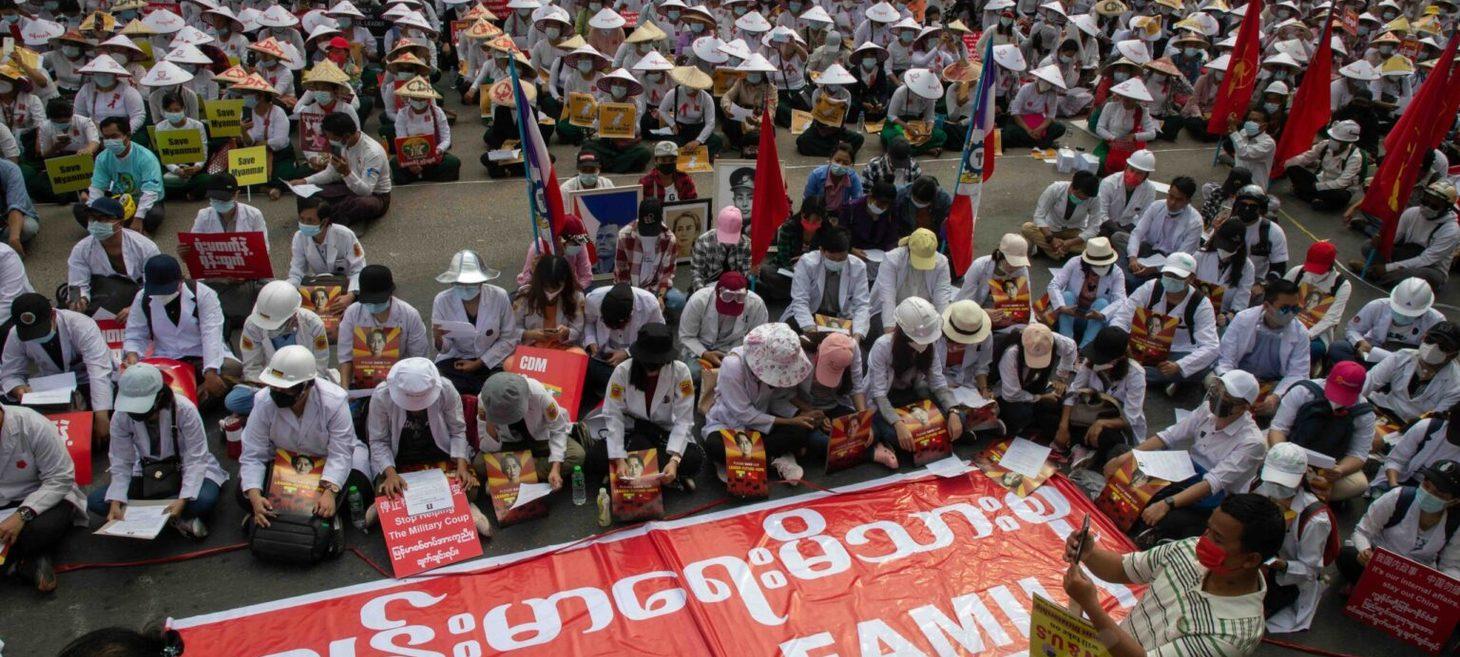
Myanmar junta blacklists hundreds of doctors for declining to work for them
The Myanmar junta has reportedly blacklisted approximately 800 young medical professionals by withholding their degree certificates and preventing them from practicing medicine within Myanmar or travelling abroad. This action is considered retaliation for their refusal to take government jobs after completing their medical residencies following the 2021 coup. As a result, these doctors are effectively denied employment opportunities. While graduation ceremonies are scheduled in Yangon, Mandalay, and Magway to award degrees delayed since the coup, only a minority of the students who started their final year in 2018 will be allowed to graduate, further highlighting the junta's punitive measures against healthcare workers who declined to work for them.
United Nations
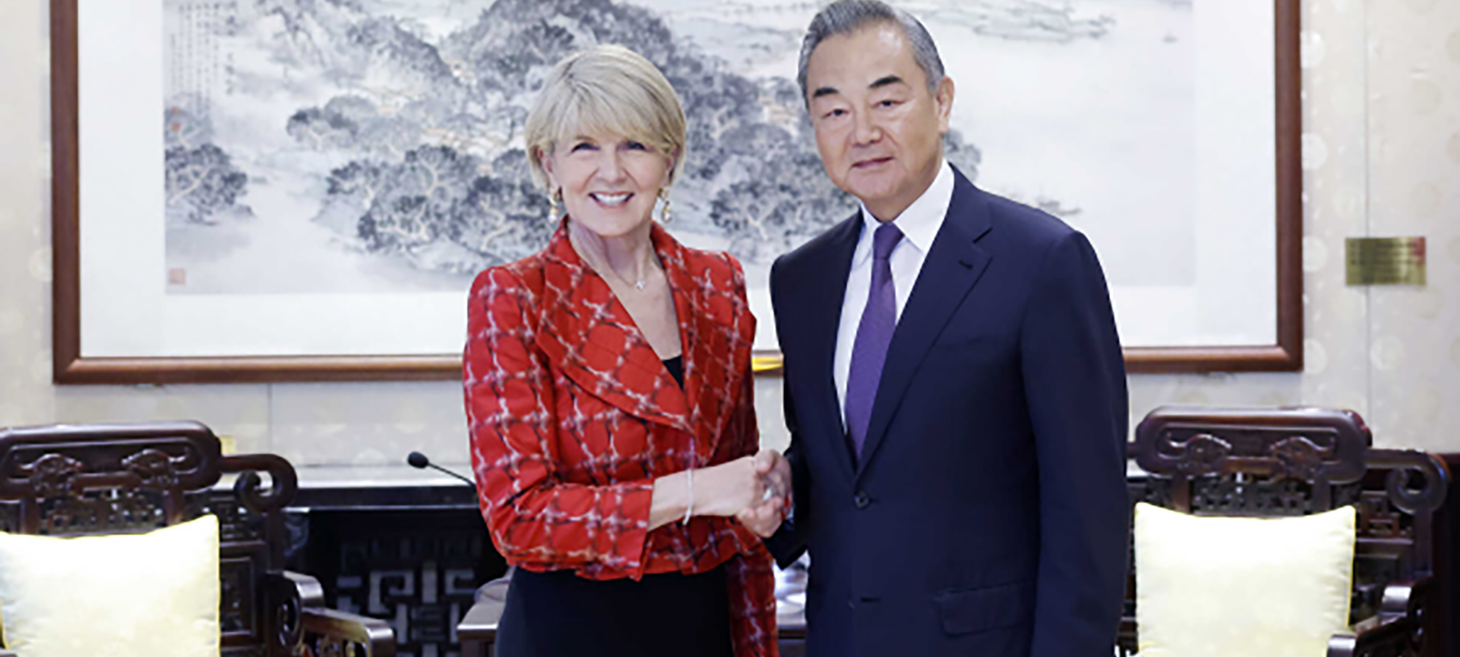
UN Urged to Investigate Myanmar Special Envoy for Conflicts of Interest
The UN is facing calls to investigate its Special Envoy for Myanmar, Julie Bishop, for potential conflicts of interest due to her private work with Chinese state-owned companies that have business ties with the Myanmar military junta. Rights group Justice for Myanmar (JFM) reports that Bishop is a strategic advisor for Energy Transition Minerals (ETM), which partners with Chinese state-owned companies involved in projects like rare earth mining and the Belt & Road initiative, which allegedly fund the junta. JFM argues that these commercial ties cast doubt on Bishop's ability to impartially mediate the ongoing conflict, especially considering China's role as a major arms supplier and source of revenue for the military. The group also points to Bishop's past work as a lobbyist for Twinza Oil Ltd, which had dealings with a former junta, and her association with Mineral Resources (MinRes), partnered with a Chinese state-owned company involved in a Myanmar nickel project that also finances the regime. Consequently, JFM urges the UN to investigate Bishop's business activities and reassess her position as special envoy.
Weather & Environment
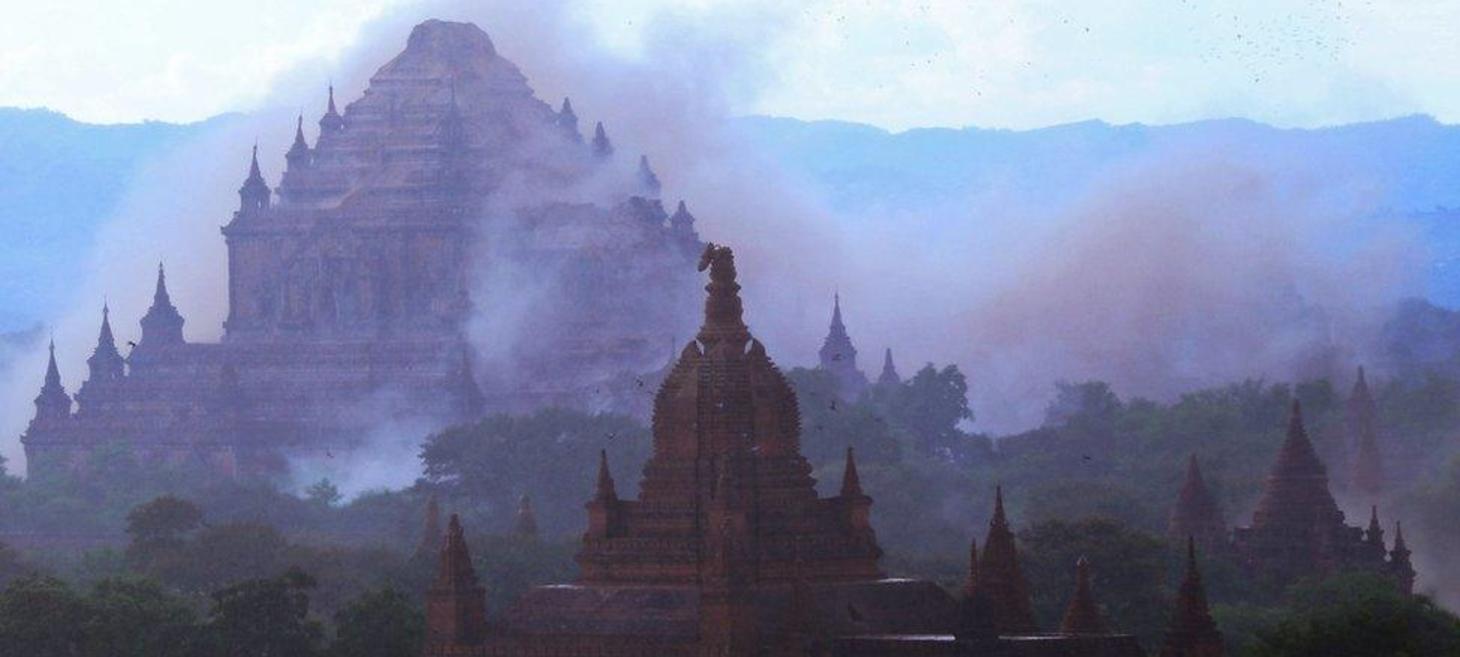
Magnitude 4.3 Earthquake Hits Myanmar: Seismic Risk for Travelers Explained
On March 9, 2025, a magnitude 4.3 earthquake struck Myanmar at a depth of 125km, following a magnitude 4.2 earthquake on March 3, 2025, at a shallower depth of 10km, raising concerns about aftershocks. Myanmar is classified as a high seismic hazard zone due to its location along active fault lines, particularly the Sagaing Fault, and the collision of the Eurasian and Indo-Australian plates, experiencing an average of 140 earthquakes annually with magnitudes of 3.0 or greater. This high risk is exacerbated by the lack of a national seismic hazard map and insufficient earthquake-resistant infrastructure, making urban areas like Yangon and Mandalay vulnerable, along with a potential tsunami threat in coastal regions. Travelers are advised to monitor earthquake alerts from DMH and USGS, know emergency procedures, avoid older buildings, and be aware of aftershocks while still acknowledging Myanmar as a top destination for cultural and historical tourism.